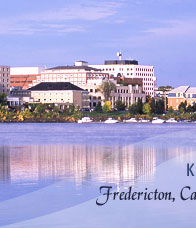Canada's foreign service vows to clear visa backlog
10/18/2013
After striking a deal to move to a higher wage scale and end a six-month rotating strike, Canada’s foreign service officers are now pledging to turn toward clearing a backlog of visa applications abroad created by the job action.
The contract deal, announced Thursday, came after Treasury Board president Tony Clement had initially pledged to stick to a standard, or “patterned” offer – only to return to the table, after the Public Service Labour Relations Board found that he negotiated in bad faith. Both sides then made concessions to reach a deal.
“I don’t think either side caved. I think that the minister and his negotiating staff decided it was time to seek a compromised solution, and compromises were made on both sides,” Tim Edwards, president of the Professional Association of Foreign Service Officers, said in an interview Friday. “I don’t have any insight into Minister Clement’s thinking, but they did establish a trend there. They demonstrated they were – in a very small number of cases – willing to go beyond [standard] patterned settlements, and it seems the same logic applies to us.”
The union got the higher wage scale it was seeking, but gave up severance pay for those who leave voluntarily – a key government demand. Mr. Edwards expects members will approve the deal, which is backdated to 2011 and expires in June of next year. That means the foreign service will receive retroactive lump-sum raise payments and Mr. Edwards and Mr. Clement will soon be back at the table.
It’s the fourth deal signed since summer by Mr. Clement, but also the latest case where the government’s “patterned settlements” were sweetened to drive a deal through. Mr. Clement declined an interview, but his office said the negotiating tactics “reflect the government’s commitment to reaching fiscally responsible settlements that are fair to Canadian taxpayers and to employees.”
The deals come as Mr. Clement undertakes a public battle to overhaul the public-service workplace, which has not sat well with the unions. “I think they’ve really tried to make unions look like villains,” said Kevin Grabowsky, president of the Union of Canadian Correctional Officers, which reached a deal last month.
“This last round is probably one of the strangest, in that they came to the table with, ‘That’s it, that’s all, go away, we don’t need to listen to you about anything else,’” Mr. Grabowsky added. The union then began minor job action, including buying a billboard in Mr. Clement’s home riding. “We’d been slowly getting their attention, and I don’t know what the magic thing was, but they called us to get us back to the table,” he said.
The Conservative government has shown “absolutely no respect” to the public service since the 2011 election, said Chris Aylward, executive vice-president of the Public Service Alliance of Canada. One of its groups reached a new deal this summer. “I think their approach has been pretty consistent for the last little while – and that is to delay and circumvent the bargaining process,” Mr. Aylward said, urging Mr. Clement to “start respecting the public sector workers, and treat them with dignity and respect.”
Mr. Clement has allies in his push for public service austerity. Gregory Thomas, federal director of the Canadian Taxpayers’ Federation, said Mr. Clement showed resolve in holding out during lengthy disputes, and pushing to roll back certain perks. “Clement demonstrated that he wasn’t afraid to weather a strike, and a long strike, and the union didn’t get everything they wanted,” Mr. Thomas said. The public service strike has left a backlog of work. New permanent residency applications are taking 70 days to process, twice as long as when the strike began in April. Mr. Edwards suspects some students and visitors were put off by visa delays caused by the strike, and avoided Canada altogether. “There is a significant backlog to clear, and that will take months,” he said. “But our members will contribute heavily to that effort, and we’re looking forward to getting back to work.”
OTTAWA — The Globe and Mail
|





